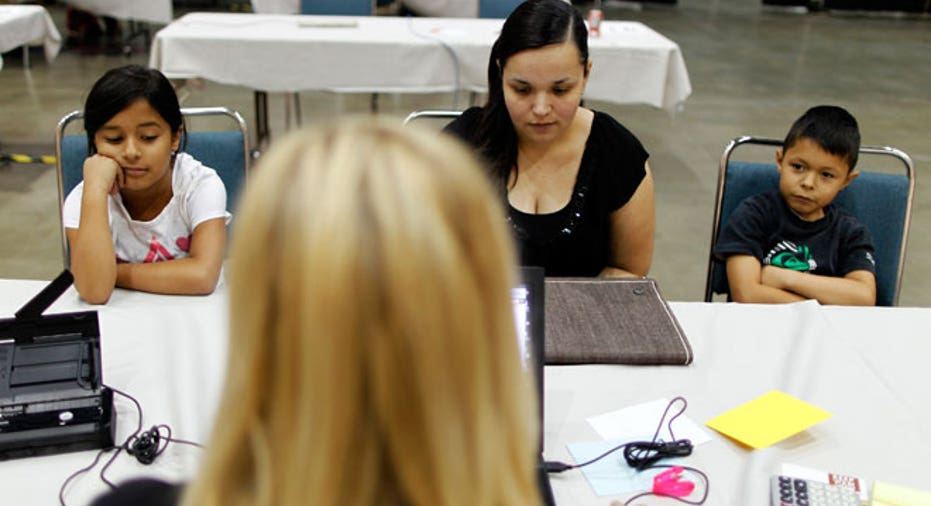What the Mortgage Settlement Means for Homeowners

News of the $25 billion dollar mortgage settlement for distressed borrowers has many struggling homeowners wondering if they will be getting some financial relief. The historic settlement includes five of the country’s largest banks, including Bank of America (NYSE:BAC), Citigroup (NYSE:C), JPMorgan Chase (NYSE:JPM), Wells Fargo (NYSE:WFC) and Ally/GMAC, which were charged with taking illegal shortcuts during the foreclosure process and other deceptive practices.
Today, approximately one in four homeowners owe more on their mortgage than their home is worth, according to the Federal Housing Finance Agency (FHFA). And while the $25 billion settlement means some homeowners will get financial help, experts say the deal won't fix the housing mess, and may not be enough to help some people.
“The housing market can’t begin to recover until we get the foreclosures out of the pipes completely,” says Adam Bailey, real estate attorney at Adam Leitman Bailey in New York and author of Finding the Uncommon Deal.
The settlement will be distributed over a three year period, and as of right now, eligibility has not been determined. However, the settlement provides for three categories of homeowners: homeowners who are current on their mortgage, but underwater; homeowners who need loan modifications; and homeowners who were foreclosed on.
“I think it’s still too early to determine how it’s going to equate to help for the individual homeowner,” says Mary Tootikian, senior mortgage banker at Envoy Mortgage and author of Stunned in America.
“I think in many cases, it’s too little too late. I’m concerned that this money is not going to go to the person who really needs the help.”
Three billion dollars of the settlement will go toward providing refinancing relief for homeowners current on their mortgage, but underwater. Qualified homeowners in this category should be able to refinance at a lower interest rate, even if they weren’t previously eligible to refinance.
For homeowners who need immediate loan modifications, $17 billion of the settlement will go toward principal reduction and loan modification.
“Basically, some people are going to get a $20,000 reduction in their principal and it’s going to be a fantastic gift. They will then be given the ability to refinance and they previously weren’t in a position to be able to do that,” says Bailey.
For the approximate 750,000 homeowners who lost their homes to foreclosure from Jan. 1, 2008 to Dec. 31, 2011, $1.5 billion will be distributed to them in the form of checks worth between $1,500 to $2,000 that can be put toward paying down debt or the purchase of a new home.
“In the end, these people were kicked out of their homes, and they’re going to be handed an $1,800 check? That does very little to restore your ability to buy another home, or even to begin to compensate for the horrors of being out on the street,” says Tootikian. “On the surface this may sound good, but I don’t see this as helping the housing market at all.”
Homeowners eligible to receive funds can expect to be identified within the next six to nine months, but payment can take up to three years, according to the recent settlement.
“Honestly, it’s a guessing game at this point as to who will receive what, and I think it’s a poor use of the money,” says Matt Englett, managing partner at Kaufman Englett and Lynd law firm in Orlando. “In states like Florida and California, some people are $10,000 or even $100,000 upside down in their mortgage and a few thousand dollars isn’t going to make a difference.”



















